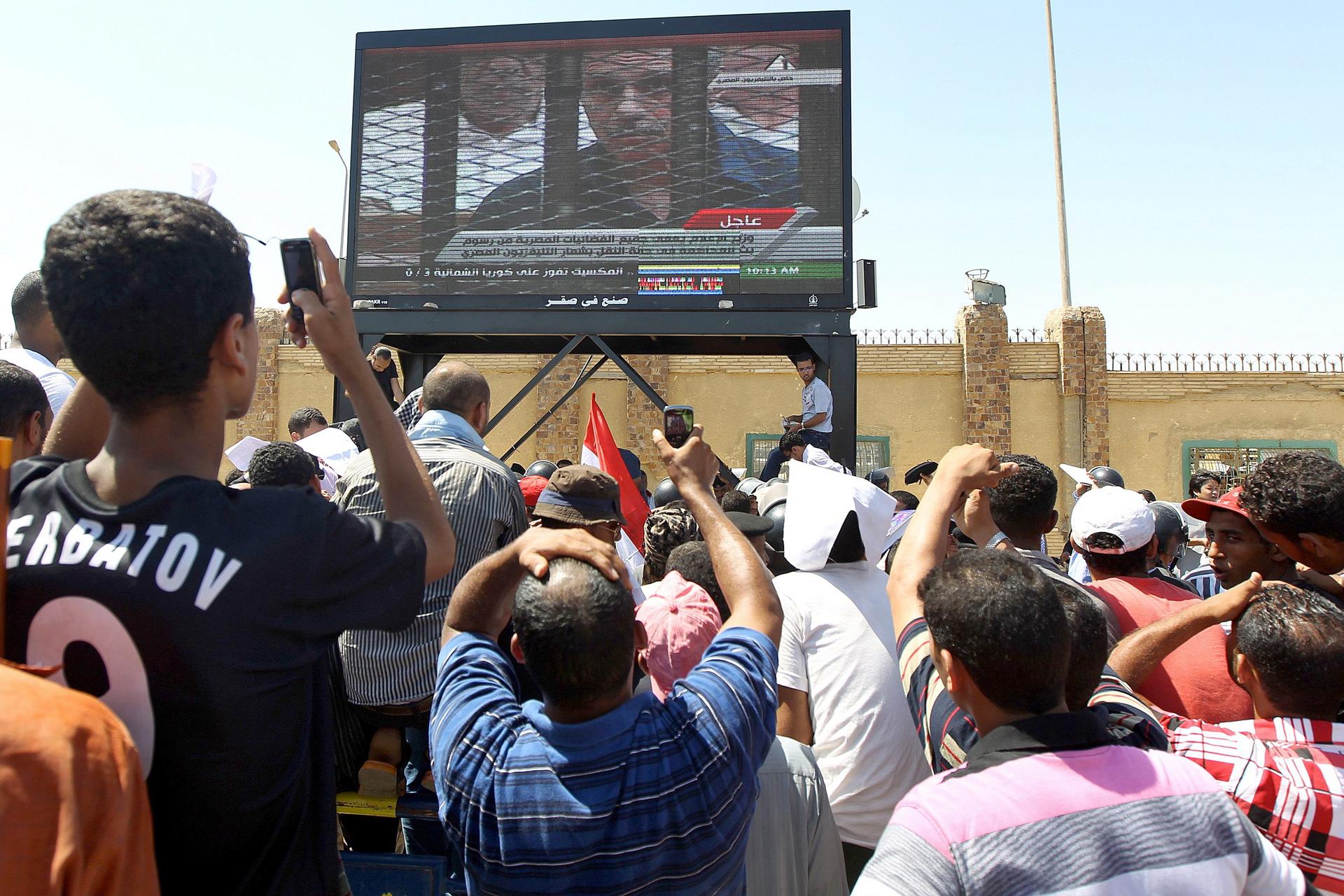7 Mubarak co-defendants back in court (VIDEO)
Seven of Hosni Mubarak's co-defendants were back in a courtroom on Thursday, a day after the start of the Egyptian ex-president's historic trial over corruption and the killing of protestors during popular uprisings that kicked off the so-called Arab Spring.
The trial of former Interior Minister Habib el-Adly and six top police officials, charged with complicity in the killing of protesters, was being broadcast live on Egyptian TV, Forbes reports.
The seven first appeared alongside Mubarak and his two sons — one-time heir apparent Gamal and businessman Alaa — on Wednesday, in a hearing presided over by the same Mubarak-appointed judge. The defendants appeared in a specially constructed "cage."
(GlobalPost reports: Mubarak denies charges as trial starts in Cairo)
The three Mubaraks separately face corruption charges, in what Al Ahram has termed the "trial of the century."
It described the appearance on TV of the ailing, 83-year-old Mubarak on a hospital bed inside a cage of mesh and iron bars thus:
It was like a dream come true for all the Egyptian people, shrouded in skepticism until moments before it started. The president of Egypt is a leader with absolute powers, as if he were Pharaoh in modern clothes.
It was difficult, if not impossible to imagine him behind bars fending off charges, but this dream has now come true in a real court.
In court, a prosecutor reportedly detailed charges against the ousted leader, accusing him of complicity in the killing of protesters during the uprising against his rule and of corruption in accepting gifts to facilitate a land deal.
Mubarak denied the charges, as did his sons, Gamal and Alaa, who were also accused in the corruption charges.
(GlobalPost writes: In Egypt, things still done the Mubarak way)
Outside the court, a room inside the Police Academy in Cairo, dozens of Mubarak loyalists clashed briefly with opponents, hitting each other with stones, before being quickly separated by security forces.
Judge Ahmed Refaat adjourned the trial of the Mubaraks' until Aug. 15. He ordered that Mubarak, who had been held in a Red Sea hospital, be moved to the International Medical Center in Cairo.
However, the trial of his co-defendants resumed Thursday.
According to Forbes:
El-Adly was Mubarak's interior minister for more than a decade, in charge of the country's 500,000-strong security forces. Some of the worst human rights abuses during Mubarak's 29 years in office are blamed on el-Adly and his police force.
Mubarak, el-Adly and the six police officials face the death penalty if convicted over the protesters' deaths.
Another defendant, businessman Hussein Salem, who fled to Spain, is being tried in absentia.
Every day, reporters and producers at The World are hard at work bringing you human-centered news from across the globe. But we can’t do it without you. We need your support to ensure we can continue this work for another year.
Make a gift today, and you’ll help us unlock a matching gift of $67,000!
